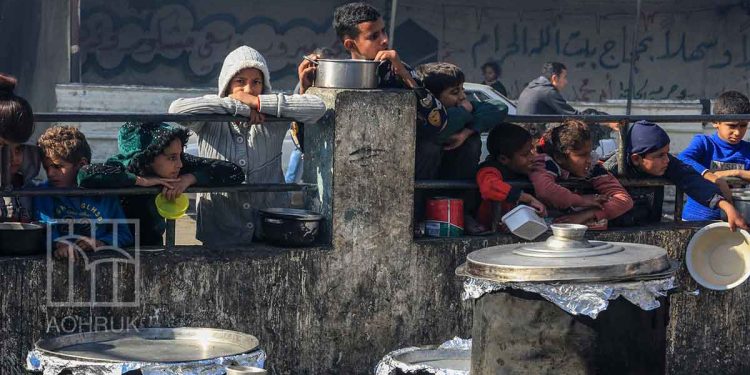Amid the ongoing Israeli military operations and comprehensive blockade on Gaza, United Nations agencies have issued urgent warnings of a complete collapse of the humanitarian situation in the besieged enclave. The continued bombardments, mass displacement, and severe shortages of shelter and food have further deepened the social and health crises faced by a population that has been subjected to a blockade for over 17 years and unprecedented levels of violence since October 2023.
The United Nations Relief and Works Agency for Palestine Refugees in the Near East (UNRWA) has called for immediate and intensified international efforts to avert what it described as an “unprecedented humanitarian catastrophe” in Gaza. In a post on the platform X, the agency stated that “the humanitarian situation in Gaza is beyond imagination” and warned that the continuation of the blockade and military escalation would lead to “unprecedented levels of human suffering.”
UNRWA reiterated its call for an immediate ceasefire and the urgent opening of border crossings to allow the entry of humanitarian aid.
These warnings come as Israeli authorities have maintained the closure of Gaza’s border crossings since 2 March, effectively preventing the entry of food, medicine, and fuel. According to Gaza’s Government Media Office, the blockade has pushed the population into an “advanced stage of famine.”
Since the beginning of the Israeli military operations on 7 October 2023, Gaza has experienced unprecedented levels of destruction, resulting in more than 170,000 deaths and injuries, the majority of whom are children and women. Over 11,000 individuals remain missing. More than 90% of Gaza’s 2.4 million residents have been displaced from their homes, facing dire conditions in overcrowded shelters or exposed to the elements, leading to the spread of disease and epidemics.
According to the Fourth Geneva Convention of 1949, the imposition of a comprehensive blockade preventing the entry of essential goods, including food and medical supplies, constitutes a war crime. The targeting of civilian infrastructure and the forcible displacement of populations are considered serious violations of international humanitarian law.
In light of these developments, there have been renewed calls for urgent investigations into the alleged violations committed against civilians in Gaza, and for those responsible to be held accountable before international justice mechanisms. Acts such as the collective punishment of civilians and large-scale forced displacement may constitute crimes against humanity, including genocide, as defined under the 1948 Convention on the Prevention and Punishment of the Crime of Genocide.


























